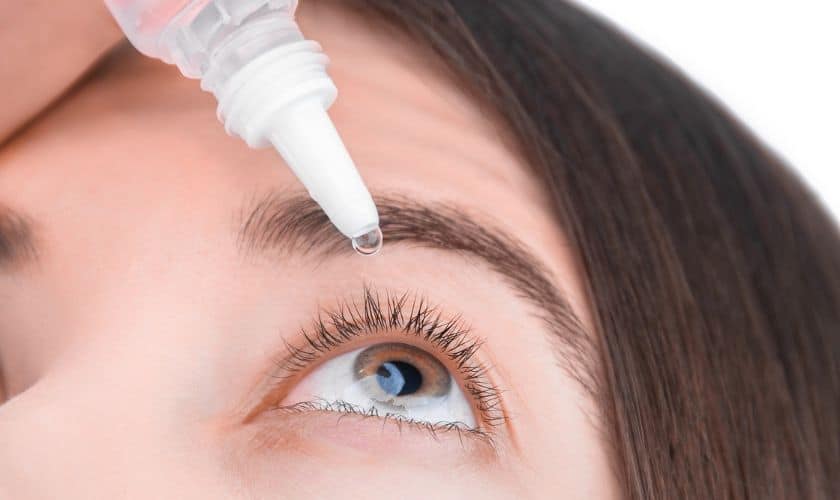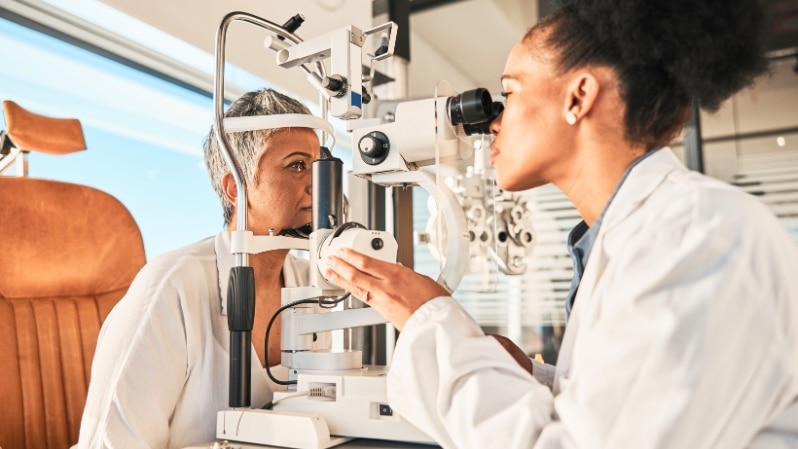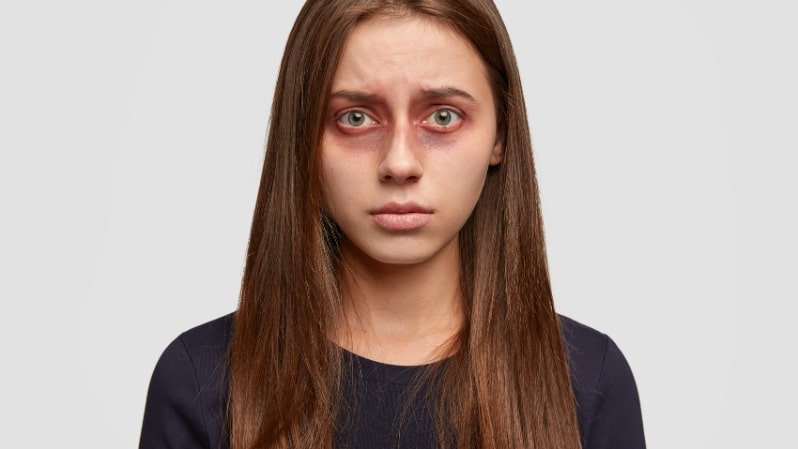Browse Eyewear

If you think you have dry eyes, you should see an eye doctor as soon as possible. Most adults between the ages of 18 and 64 need an eye exam at least every two years. Older adults and people who are more likely to have eye problems may need to see an eye specialist at least once a year.
If you don’t treat dry eyes, the symptoms may get worse and you could end up with permanent damage to your eyes. So, if you think you might have dry eyes, you should talk to a specialist right away.
You should make an appointment with an optometrist if you think you have dry eyes or if you have any other eye problems. An optometrist is a primary eye doctor who can help find out what’s wrong with your eyes and tell you how to treat them. Dry eyes treatment can be very essential for you. Dry eyes treatment can be done by an ophthalmologist. You can ask these 7 questions when visiting for dry eyes treatment:
1.What Does “Dry Eye” Mean?
Dry eye is a long-term condition in which your eyes don’t make enough tears. Tears are important because they help keep your eyes healthy and your vision clear. Your tears can also help wash away dust and other things that get into your eye. They can also keep infections from happening.
2.What Is The Main Reason Why Your Eyes Are Dry?
There are many things that can cause dry eyes, so it’s important to tell your eye doctor about your medical history and any medicines you’re taking. Some of the most common things that cause dry eyes are:
- Having less tears because of getting older or changes in hormones, especially if you’re over 50.
- Having an auto-immune disease like lupus or rheumatoid arthritis
- Tear gland damage from Sjogren’s syndrome
- Blepharitis (chronic eyelid inflammation)
- Some medicines, like those for heart disease, high blood pressure, anxiety, depression, and allergies, are used to help people feel better.
- Use of contact lenses for a long time
- Eye surgery to correct vision problems in the past
- Some viral infections, like shingles, can be painful.
- Living somewhere dry
- Some ways of living and working, like spending too much time in front of a screen,
- A lack of nutrients over a long period of time, especially vitamin A and omega-3 fatty acids
3.What Are The Signs That Your Eyes Are Dry?
The most common signs of dry eyes are burning, redness, and irritation. Some other signs could be:
- Stinging
- Shedding too many tears
- Feeling of dirt in the eyes
- It’s hard to see.
- Ability to see light
- When wearing contact lenses, it hurts.
4.What Is A Workup For Dry Eyes?
A dry eye workup is a set of tests and tools that your doctor may use to figure out if you have dry eye disease. First, a full eye exam will be done to help figure out if you have dry eye. This requires a close look at your eyes with a magnifying glass. Your eye doctor may also put dyes in your eyes to see how much and how fast your tears are coming out.
Another test could measure how much you cry over a 5-minute period. The Schirmer’s test is the name for this. Your eye doctor will also look at your health history and ask you about any medicines or supplements you take.
5.Can You Get Rid Of Dry Eyes?
Dry eyes can’t be fixed. But there are many treatments that can help make sure your eyes make and keep making enough tears to stay healthy.
Depending on the cause, your eye doctor may also treat the inflammation that is causing your eyes to feel dry. If you stick with your treatment, you can lessen the effects of dry eyes and lower the risk of eye damage.
6.How Is Dry Eye Treatment Done?
The goal of treatment for dry eyes is to get your eyes to make enough tears. This means saving tears, making more tears, and adding more tears.
Your eye doctor may suggest that you buy or get eye drops called “artificial tears” to help keep your eyes moist. If you need to use eye drops often or if you have allergies, tears without preservatives may be best.
Your doctor may give you ointments for your eyelids if you have inflammation that could be making your eyes feel dry.
If your eye doctor thinks that your tears are leaving your eyes too quickly, they may put punctual plugs in the inner corners of each eye.
7.What Is The Most Up-To-Date Way to Treat Dry Eyes?
Researchers are still looking into what causes dry eye disease and how to treat it. For example, enzymes and antibodies could be used to treat dry eyes in the future. It’s also important to talk to your doctor before taking any nutritional supplements, since they may interact with other medicines you may be taking.
Final Words
Dry eye is a common long-term eye problem that can lead to burning, redness, and changes in vision. Seeing an eye doctor right away is important if you think you have dry eyes. The sooner you get treatment for dry eye disease, the sooner you can feel better and the less likely you are to lose your vision. You can visit our eye clinic to get treatment for any sort of eye related problems.



